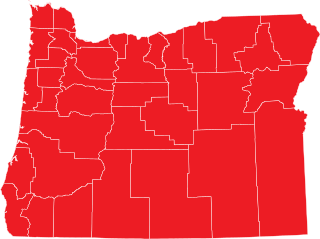United States
Differences between states
One way that states differ in laws governing the initiative process has to do with whether the ballot title is determined before signatures are collected, or after.
Another way that states differ has to do with whether the ballot title is determined by the government (which could be a commission, a ballot title determination board, the Secretary of State, or some other election official) or whether the ballot title is determined by the political organization that is advocating for the measure.
Pre-circulation ballot titles
States where the ballot title is set prior to circulation include:
Alaska, Arkansas, California, Colorado, Idaho, Maine, Massachusetts, Mississippi, Missouri, Montana, North Dakota, Ohio, Oregon (In Oregon, the ballot title is set after 1,000 initial sponsorship signatures have been submitted) and Washington.

In political science, an initiative is a means by which a petition signed by a certain number of registered voters can force a government to choose either to enact a law or hold a public vote in the legislature in what is called indirect initiative, or under direct initiative, where the proposition is put to a plebiscite or referendum, in what is called a Popular initiated Referendum or citizen-initiated referendum.
Carla Howell is an American political activist, small government advocate, songwriter, and recording artist. She is most known for organizing tax-cut initiative petitions in Massachusetts. She ran for office in Massachusetts for U.S. Senate (2000), Governor (2002), and State Auditor (1998) on the Libertarian Party ticket. She served on the staff of the Libertarian National Committee from December 2011 until June 2017.

In California, a ballot proposition is a referendum or an initiative measure that is submitted to the electorate for a direct decision or direct vote. If passed, it can alter one or more of the articles of the Constitution of California, one or more of the 29 California Codes, or another law in the California Statutes by clarifying current or adding statute(s) or removing current statute(s).
In the politics of the United States, the process of initiatives and referendums allow citizens of many U.S. states to place new legislation, or to place legislation that has recently been passed by a legislature on a ballot for a popular vote. Initiatives and referendums, along with recall elections and popular primary elections, are signature reforms of the Progressive Era; they are written into several state constitutions, particularly in the West. It is a form of direct democracy.

The Oregon Medical Marijuana Act, a law in the U.S. state of Oregon, was established by Oregon Ballot Measure 67 in 1998, passing with 54.6% support. It modified state law to allow the cultivation, possession, and use of marijuana by doctor recommendation for patients with certain medical conditions. The Act does not affect federal law, which still prohibits the cultivation and possession of marijuana.
Term limits legislation – term limits for state and federal office-holders – has been a recurring political issue in the U.S. state of Oregon since 1992. In that year's general election, Oregon voters approved Ballot Measure 3, an initiative that enacted term limits for representatives in both houses of the United States Congress and the Oregon Legislative Assembly, and statewide officeholders. It has been described as the strictest term limits law in the country.

Elections in Oregon are all held using a Vote by Mail (VBM) system. This means that all registered voters receive their ballots via postal delivery and can vote from their homes. A state Voters’ Pamphlet is mailed to every household in Oregon about three weeks before each statewide election. It includes information about each measure and candidate in the upcoming election.

Oregon Ballot Measure 64 was an initiated state statute ballot measure on the November 4, 2008 general election ballot in Oregon.

Oregon Ballot Measure 58 was an initiated state statute ballot measure sponsored by Bill Sizemore that appeared on the November 4, 2008 general election ballot in Oregon. It was rejected by voters.

Oregon Ballot Measure 59 was an initiated state statute ballot measure sponsored by Bill Sizemore that appeared on the November 4, 2008 general election ballot in Oregon, United States. If it had passed, Oregon would have join Alabama, Iowa, and Louisiana as the only states to allow federal income taxes to be fully deducted on state income tax returns.

Oregon Ballot Measure 60 was an initiated state statute ballot measure filed by Bill Sizemore and R. Russell Walker. Sizemore referred to it the "Kids First Act." The measure appeared on the November 4, 2008 general election ballot in Oregon.

The Alaska Clean Water Initiative (ACWI) of 2008 was a citizens-initiative ballot measure. In Alaska, such measures become state law, if a majority of voters vote in favor of the measure. The ACWI contained regulatory language limiting the release and distribution of "sulfide mining" effluents and products into the environment. In August 2008, Ballot Measure 4, the "Alaska Clean Water Initiative," was voted down in the statewide primary election.

Proposition 23 was a California ballot proposition that was on the November 2, 2010 California statewide ballot. It was defeated by California voters during the statewide election by a 23% margin. If passed, it would have suspended AB 32, a law enacted in 2006, legally referred to its long name, the Global Warming Solutions Act of 2006. Sponsors of the initiative referred to their measure as the California Jobs Initiative while opponents called it the Dirty Energy Prop.

Massachusetts Question 3, filed under the name, the 3 percent Sales Tax Relief Act, appears on the November 2, 2010 ballot in the state of Massachusetts as an initiative. The measure, if enacted by voters, would reduce the state sales tax rate from 6.25 to 3 percent. The measure is being sponsored by the Alliance to Roll Back Taxes headed by Carla Howell. The measure would be enacted into a law 30 days after the election if approved by voters.
The history of direct democracy amongst non-Native Americans in the United States dates from the 1630s in the New England Colonies. Many New England towns still carry on that tradition in the form of open town meetings.
A unified primary is an electoral system for narrowing the field of candidates for a single-winner general election, similar to a nonpartisan blanket primary, but using approval voting for the first round.

Six Californias was a proposed initiative to split the U.S. state of California into six states. It failed to qualify as a California ballot measure for the 2016 state elections due to receiving insufficient signatures.

Cal 3 was a proposal to split the U.S. state of California into three states. It was launched in August 2017 by Silicon Valley venture capitalist Tim Draper, who led the effort to have it originally qualify on the November 2018 state ballot as Proposition 9, officially the Division of California into Three States initiative. Proponents of the proposal argued that dividing California into three states would provide fairer and more responsive governance for large regions outside of California’s major cities. In July 2018, the Supreme Court of California pulled it from the ballot for further state constitutional review. Draper officially stopped pushing for the measure soon after. On 12 September 2018, the court permanently removed the measure from all future ballots.

Postal voting in the United States, also referred to as mail-in voting or vote by mail, is a form of absentee ballot in the United States, in which a ballot is mailed to the home of a registered voter, who fills it out and returns it by postal mail or drops it off in-person at a secure drop box or voting center. Postal voting reduces staff requirements at polling centers during an election. All-mail elections can save money, while a mix of voting options can cost more. In some states, ballots may be sent by the Postal Service without prepayment of postage.













